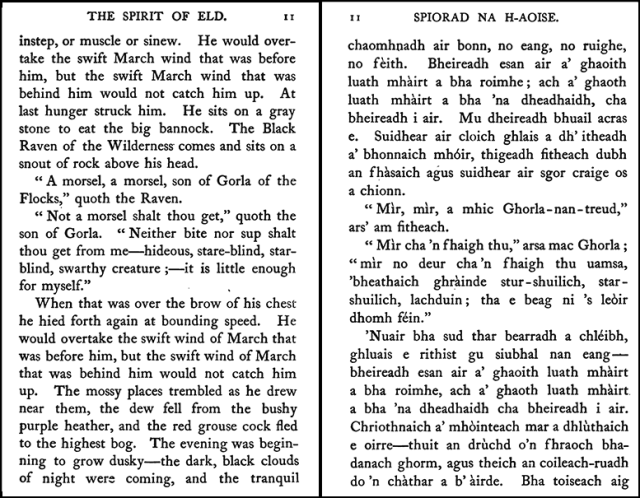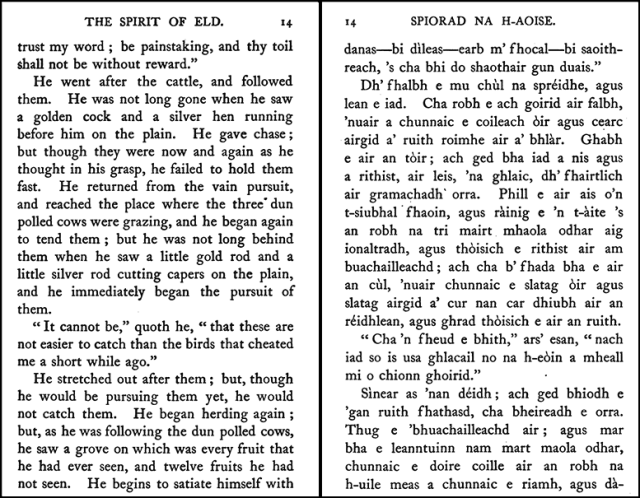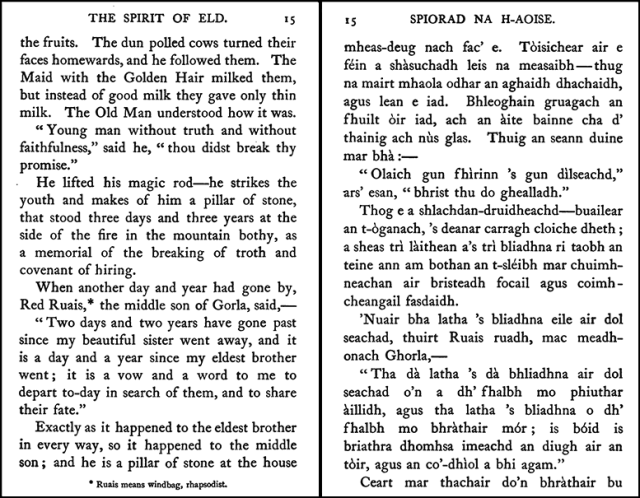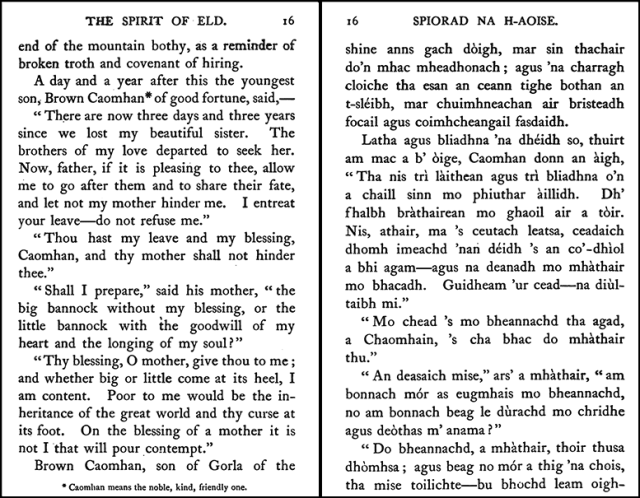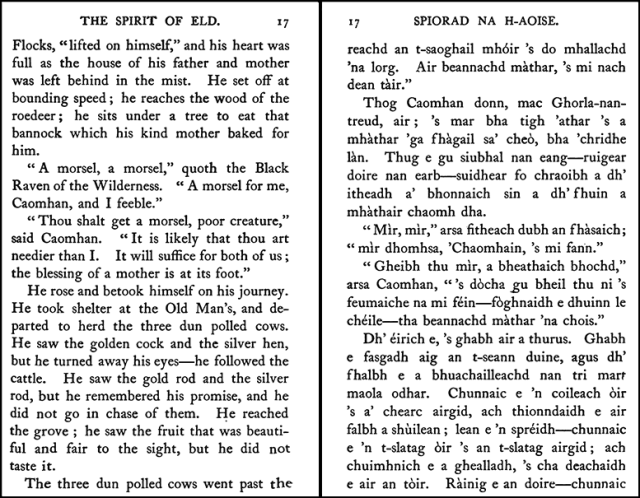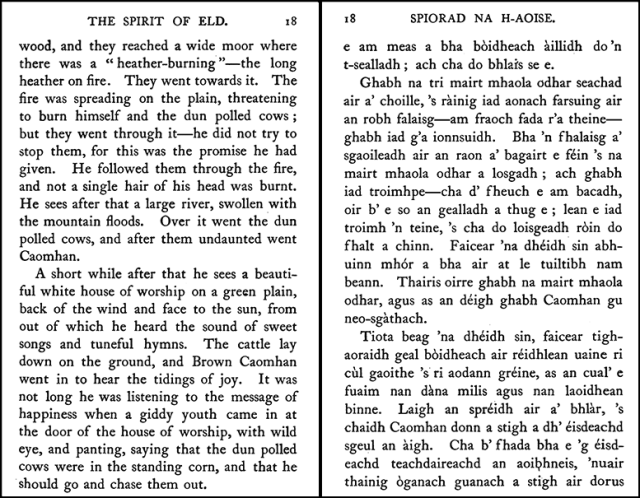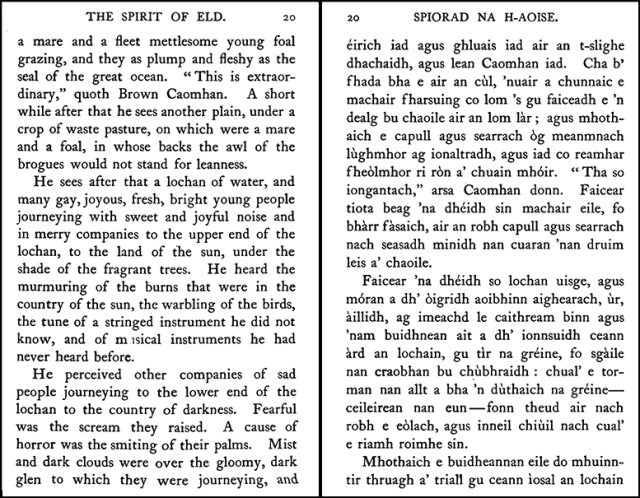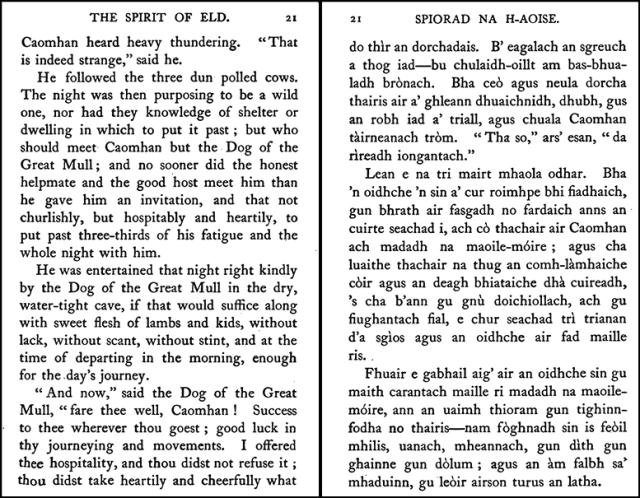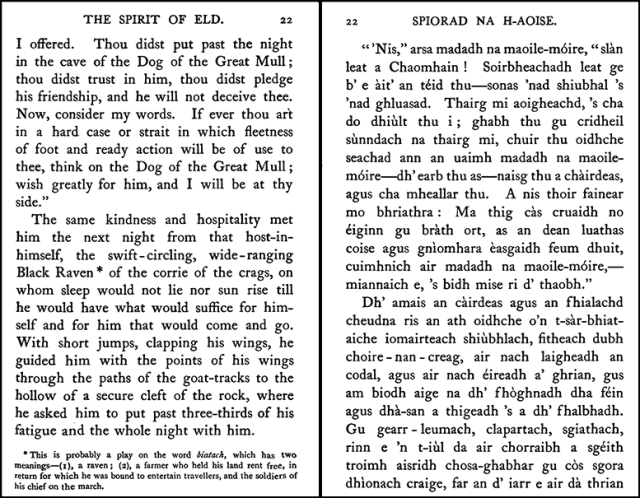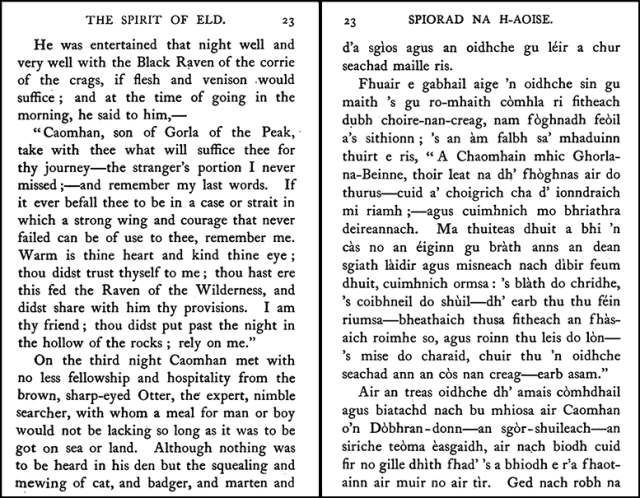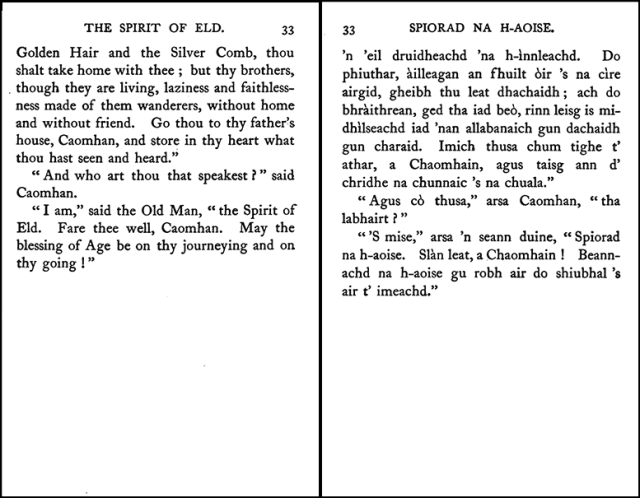Chateaux en Espagne by Susan Archer Talley is one of two prose pieces featured in my upcoming Poems & Poetry anthology. I think you’ll agree it deserves a place amongst Our Susan’s Poetry. It grieves me that her mentor, Edgar Allan Poe, did not live to see this piece because it demonstrates the quality he most recognized in her work–imagination.
Chateaux en Espagne! Let Benthanmites sneer, if they will, at this expression, as embodying the very quintessence of idle folly. To me, as to many others who may chance to read these lines, it is a potent charm-the “open sesame” to a region of things glorious and beautiful, which it is better to behold in Dreamland than never behold at all.
Most grave and reverence seignors of the Benthamit school-you who dwell exclusively in the world of the actual, and to whom the golden realms of imagination are as unseen as are those enchanted gardens of the desert, past which the fainting pilgrim journeys, unconscious of the rich fruits and cooling waters within his reach-sneer not at the poet’s Dreamland.
To you it is an Eden unvisited, an Eldorado of riches, within whose golden gates thine heart-stained footsteps may never enter; yet oftentimes you-yea, even you-have unconsciously approached near enough to behold a dim reflection of its radiance upon the sunset clouds, or to hear, in the silence of night, a faint echo of its music, borne down from those airy regions to the dull atmosphere of earth-sounds and sights to you strange and unrecognized, yet, for an instant, stirring a finer chord of feeling than those which daily jar to the touch of worldly influences.
For instance, has there never been a time when, wearied of the close counting-house, you have lifted your eyes from those interminable ledgers, and they have, by some chance, rested upon a picture–a woman’s sweet face or a scene of Arcadian beauty? As you look at it, a strange feeling is stirred within you–a consciousness of, and a longing for some beauty or happiness which is lacking in your sterile existence. Unconsciously, your thoughts wander away from the present in search of that unknown good, and you are lost in a dream of what, perchance, once was, or might have been, or may even yet be.
“Pshaw!” you say, turning again to your columns of figures; “it is but an idle dreaming.”
Still, has it not fallen upon your heart like dew upon parched flowers–awakening it to gentler and purer emotions, and a yearning for something better and nobler than what you meet in the hard working-day life of yours? Lo! the dim-reflected light and faint, unrecognized music of Dreamland!
You do not know where lies this Dreamland! It is a fair region above the strata of our earthly atmosphere, which veils it from the sight of mere dwellers below. Many are the wanderers here. Some roam idly and aimlessly, whithsoever the flowery path may lead, or the bright stream wander; others build for themselves abodes–Chateaux d’ Espagne they are called, or castles in the air–where, as in the Palace of Art, the soul gathers to itself all that it most loves or desires, and in the midst thereof takes its rest. Few there are who do hot possess some such “place of pleasance,” where they reign autocrats supreme, ordering all things at their will.
Could we wander throughout the realm of Dreamland, and behold the chateaux there erected, varied and strange would their aspect appear. Here we should see a cottage orne, embowered in roses and myrtle–a shrine erected, doubtless, by some loving and unambitious heart for its cherished idol; there, a proud mansion, with walls of marble and columns of porphyry, and, within, couches of velvet, and inliad tables, bearing costly fruits in silver dishes, and rare wines sparkling in golden goblets–for these things cost little in Dreamland. Fitting abode this for the Epicurean. Yonder, amid those tw2ilight regions of purple hills, a few turrets quietly raise their gray heads–abode of some world-sick and disappointed spirit, whose sole prayer now is, “Implora pace.”
Higher and farther still, crowing a lofty and rugged eminence, glitters a temple upon whose fair facade is inscribed the magic word, Fame. Here dwells the ambitious and aspiring soul–whether of poet, or scholar, or artist–fondly hping that in time he may bring down that air-built structure unto the earth, a visible reality to the eyes of all men. This dream many have realized. Have we not read of a young poet who “awoke one morning,” and, like the princess in the fairy tale, found his castle in the air suddenly transferred to earth–a monument which time itself cannot destroy.
Others, less fortunate, have built by slow and toilsome degrees and untried energies–wearing away their lives in the effort to perpetuate their airy fabrics–and have seen, at least, the treacherous walls give way with a crash, burying themselves beneath the ruins. Dreamland is full of such ruins–too often the monument of some broken heart. Yet, better thus than that the the heart, crushed and bruised, should yet “brokenly live on” to haunt forever the desolate ruins of what might have been its pride and glory.
For the saddest of all things is this undying regret for what might have been. The joy that has been, was, and is still our own. Once, it was a blessed reality. Now that it is past, we hold its image enshrined in our hearts, to be lived over in memory. We know that this is a joy which cannot be taken from us, and we are blessed.
“Blessed for the beautiful within us dwelling,
Never to fade; a refuge from distress;
A spring of purer life, still freshly welling,
To clothe the barrenness of earthly dust,
With flowers divine.”
Life has given us one draught of real bliss, and now that the eup is empty, we place it reverently and resignedly upon the grave of the past, rejoicing that it has been ours. Yea, though the draught was brief, and its dregs gall and wormwood to our lips, still we have known the sweetness of life, and feel that there is nothing more to be desired on earth; as she who said:
“Ive lived and loved, and that was today;
Make ready my grave clothes tomorrow.”
Thus with the joy that has been. But for that which might have been–that which was within our grasp, and torn from us, helpless, despairing–calling in vain for human aid–praying in vain fro divine interposition; what is it but a yearning and an anguish forever?
I pity the man or the woman, who , when life is dark and the heart weary, has not some chateau in Dreamland, whither he may retire and find rest and consolation. If poverty assail, he can turn from his meager apartment to the luxurious splendors of this chateau. If friends desert, he can there summon whom his soul desires, and walk amid the great and god of the earth. And in this companionship, though in Dreamland, is his soul strengthened and cheered, and so fitted for the trials and struggles of our every day life. For all things that bring thoughts of the good and the beautiful to our hearts, are as the visits of angels, who, in departing, leave a blessing behind.
For myself, I have a castle in Dreamland–a Chateau d’ Espagne–which I would not exchange for one of substantial stone and cement. “Fast by the margin of a summer sea,” is this castle of mine–a vast and unknown sea, whose playful ripple, or sad murmour, or stormy surge, echoes ever in harmony with the changeful mood of my own spirit. For I love the sea–so full it is of life and motion–so varied in aspect; ruffled by a breath–stirred to its uttermost depths by a storm; yet the same–ever the same. Here my soul feels, in gazing across its vast expanse, as though it had room in which to expand. No near hills for me, with their changless and lifeless aspect, shutting me in as with a prison-wall; but space, free and boundless space, in which the soul may spread its wings and soar at large. Far away, toward the West, it is true, stretches a faint line of blue hills; but these serve to reveal instead of concealing the distance. And all between, lie scenes of varied and picturesque beautiful; while nearer, close around my chateau, are gardens, fragrant with rare flowers and the perfume of orange groves. And this is the spot which my soul had chosen for its place of pleasance.
But you, my friend, shall come with me to my chateau, and behold, with your own eyes, that which appears to me so fair.
It is twilight, my favorite hour for visits to Dreamland. The fire casts vague shadows here in this dim room; quiet and silence are within, cold and tempest without. You are, like myself, wearied with the cares or the emptiness of the past day , or with the coldness and worldliness of those with whom you have been brought in contact. Cheer up! Let us shut the door, and with it these evil spirits. Now close your eyes; clasp over them your weary hands. You have read of the magic power possessed by spirits, evil and good, of transporting a person, in an instant’s space of time, to the land of sprites and fairies. You have heard the sweet legend of Kilmenny? A miracle, you thing; yet lose, a greater is here; for while your body remains quiet and almost unconscious, sunk in the luxurious depths of that cushioned arm-chair, your spirit is away–away with mine, in Dreamland.
Vague at first, and indistinct; a realm of mingling and moving shadows. But these clear away, and lo, before us rise the turrets of my chateau.
No splendid edifice of gold, and porphyry, and marble, though these I might have at will; nay, not even so much as a pretence at architectural elegance. I like not the cold and symmetrical formality of the classic orders, nor the crowded and laborious arches of the gothic, nor yet the heavy and gloomy style of the middle ages. But here I have a mingling of the beauties of each; a fantastic but picturesque jumble of turrets, and columns, and arches–a “most harmonious discord” of architectural achievement. Others might smile at its want of order and appropriateness of parts, but a greater than I–the great wizard of the North, of whom we have all heard, possessed a similar taste, and reared a chateau like to my own–not in Dreamland, but among the wild and picturesque hills of Scotland.
We will first take a turn through the gardens, where the shadows lie still and heavy beneath the trees, whose branches are yet lighted by the rays of the setting sun. For who does not love a garden? though by that name be dignified a tiny plot of ground, ornamented with a few cowslips and a rosebush .Never yet was there a poet, or a great and learned man, who delighted not in a garden. It is the first love of a child, and often the last lingering fancy of old age; and is, in fact, but a form of development of that love of nature which is implanted in every heart, and never thoroughly worn out, even amid the world-worn denizens of the city.
Yet here in my gardens, in Dreamland, are no straight graveled walks and stiff pruned hedges, and plots of mathematical symmetry. I hate this torturing of nature into forms of art. Oh, for once, said my soul, let nature be herself in all her aspects that are pure and beautiful. Yes, let the soul be itself, and here in dreamland, away from worldly influences, live the life that God gave it; all its generous emotions un-chilled–its aspirations unsubdued–its nobler instincts untrammeled by artificial teaching. And so, here in Dreamland, I live a higher and purer life than on earth. And here in my garden I delight to wander as I will, with nature in all her beautiful forms around me. Here are clumps of orange and magnolia perfuming the air with their snow-white blossoms, and clear, crystal springs that gush from their native rock, and wander away, at their own sweet will, amid grassy banks, and wild flowers, and moss-covered rocks. Here are many lovely little spots and picturesque objects, which would please the fancy of poet or painter, though the ordinary observer might pass them by unheeded. Now we come to a mossy little hollow, overshadowed by the low drooping boughs of a tree, amid whose gnarled roots, a little well lies dark, and clear, and still. Lower down, the snow-white blossoms of the water-lily gleam amid their dark green leaves. Here, a fallen trunk, gray with lichens, spans the stream; and just beyond, rises a huge rock, rich in gold and green moss, and feathery fern, and graceful creepers with scarlet berries. how many beautiful pictures; and what artist could do without a Dreamland of his own?
The moon is rising slowly over the sea now–the fair bright sea, rippling in a gentle swell, and falling upon the silvery sands, and murmuring dreamily to itself. A few rosy shells, half-filled with water–masses of tangled sea-weed; and here, a bit of wreck cast on the sands, as a touch of shadow in the bright picture. Far away toward the West, a hazy, golden gleam is reflected from a bright world beyond, of which, as yet, I know nothing.
Thitherward my thoughts often turn, in vague, though earnest longings for that unknown land, whose name is Hereafter. Sometimes, when the sea is dark and threatening, I hear a voice whisper, “It is the Sea of Death, and a time will come, when, as you sit lonely upon this shore, listening to its moaning voice, there will come a little boat to your feet, steered by a fair angel, and over that sea you will go together to the beautiful land that is beyond.”
Do you see those ships gliding, spirit-like, through the twilight? They are mine; for here, in Dreamland, I have a whole fleet of my own. their names are various–Prayer, Hope and Love. I send them forth, richly laden; I trust them to the winds and the waves. Sometimes they are wafted on fairly to their destined haven; sometimes they go down gently, yet hopelessly, when all is calm; and at times there arises a mightily tempest, and the wreck is dashed back, riven and splintered, at my feet. All along the shore are strewn fragments of these wrecks; and even when the sea is brightest, I remember that those ripples are sparkling and singing over wrecks that lie buried, with all their rich freight, in the moaning depths below.
I love to watch that long line of moonlihgt reflrected upon the waters, like an illuminated pathway to the Hereafter beyond. Sometimes I see bright figures, as of angels, pass and repass that line of light. Sometimes I see a shadow by my side, and hear my name called, and feel my hand clasped; and when I turn and stretch forth my arms, it is gone, gone! And the Sea of Death means on in its everlasting dirge.
But away with sad thoughts, and come with me now into my chateau. I have books here–a great library, which I have delighted to collect, and where I love to shut myself in, and, forgetful of my own insignificance, talk, face to face, with the great minds of earth. Here they are, of all nations and ages–a strange and motley assemblage. Now I listen, curious and awe-struck, to a learned Rabbi, or an Athenian philosopher, or a bearded Monk of the dark ages. These come and go, like phantoms, strangely and coldly, exciting in my mind only awe and reverence. But with the dreamy poet, or the brilliant eassayist, or romancer of more modern times, my soul holds a closer and more familiar communion. With these I pass many a happy hour–listening to their words, and even gazing into their faces until their features become to me as those of familiar friends. Among the best loved of these are genial Sir Walter, and “gentle Elis,” and hearty, cheerful Kit North–with whom I delight to roam away over the breezy Moors, and in the shadow of Ben Lomond, and on the wild and picturesque shores of Inch Cruin. Sometimes I listen to the weird Rhyme of the Ancient Mariner, or to the voice of one who sinned against his own soul in writing Queen Mab. But most, I love the sweet and dreamy tone of one who delights to wander away from the haunts of men, “amid lonely hearts of purple hills,” and by “salt sea-marshes,” and ferny fens, and on the shores where
“all through the moonless night,
The plunging seas draw backward from the land,
The moon-led waters white.”
I know not why it is that I so love Tennyson, but with him my heart instinctively claims a closer sympathy than with any other poet. His melodies, when I first heard them, struck startling upon my soul, as echoes of its own, or of what I seemed to have heard long ago, and to remember as a half-forgotten dream. And now his voice ever sends through my heart a thrill as of a fresher and purer life, rife with all images of beauty.
In my chateau I have, also, a studio, where I daily paint some rare icutes to adorn the walls of my gallery; and the picture even takes the tone of my own mind, as it chances to be at the moment–grave or gay, sunny or sombre. Now, it is a flowery knoll, with sunlight streaming through crimson autumn foliage, and flecking with gold the mossy rocks and yellow ferns. Then, it is a desolate sea-coast, with wild waves dashing upon beetling crags, and on the sands a human form, clinging with lifeless hand to a fragment of broken mast. Again, when my spirit is strong, and full of a tameless energy to “do and dare”–to struggle against all trials of life and conquer–I paint a battle-piece, with mailed warriors and fiery chargers mingling in combat, and the flash of swords gleaming through “war-clouds dun.” And then, in some quiet, tender mood, I sketch a little child, with meek, loving blue eyes and golden curls, clasping to his heart a lily or a dove–a little child who was wont to rest his head upon my bosom, but whom I see no more now, save in Dreamland. I have other pictures as dear as this, but they are veiled, and I dare not look upon them, for the wild regrets which awaken for the dead, and worse, far worse, for the living lost.
Yet here, in Dreamland, I meet them all again. Here I walk, as of old, amid friends who are seen no more on earth. Voices, long silent, speak to me here, gently and tenderly; eyes, long dimmed in death, gaze lovingly into my own; and hands clasp my own, whose warm pressure I shall never again meet, save in Dreamland. They are here–all here; and when on earth my soul faints in unutterable yearning for their presence, is it nothing to be able to enter Dreamland and there meet them, my loved and cherished guests? And so, those who are dad to others are not dead to me; and voices, forgotten by them, I hear daily and forget not.
You, my friend, may wander as you will over my chateau, and enter every where save in one apartment, which, like that in the fairy tale, is never opened; yet, no chamber of horrors is this, but an inner sanctuary of things to my soul, too holy for the gaze of other eyes. Who reveals the full secrets of his chateau in Dreamland? Is there not in every one a sealed chamber, where the soul of the possessor lives a life of unknown save to itself and God? There are hoarded the joys which have made earth a paradise, and the agonies whose very remembrance is a pang–yet a pang so blent with the soul’s deepest affections that we cannot turn away from, or forget them. And, oftentimes, in that inner temple, is an idol enshrined, a dim phantom-form, whose name the pale lips of the dreamer utter not to human ear.
In Dreamland, we live over the hours past; in Dreamland, anticipate those that are to come; in our chateau, hoard all things that the soul most loves and desires. There are souls, strengthened and refreshed for the cares and trials of life; and should some cold voice say, sneeringly, “They are shadows,” then we will answer, looking upward, strong and serene in our faith: “Yea; but shadows of the great Truths that have been, and that shall yet be in the Hereafter, whose golden haze shines afar, beyond the great unknown Sea of Death.”






